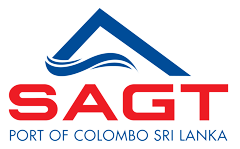Going beyond: SAGT’s sustainability journey
South Asia Gateway Terminals (SAGT) is on target to meet its own commitments to carbon neutrality, having set out on that journey in 2018
SAGT, in the port of Colombo, has been at the forefront of driving sustainable business operations. The company has proactively embraced innovative measures that address environmental, social and economic challenges across the maritime industry.
In 2018, the company got on the front foot by formalising its carbon-reduction commitment with the launch of a comprehensive Sustainability Management Framework. It incorporated a policy in sustainability combined with a sustainability performance tracking mechanism. The framework is periodically reviewed by different levels of management, to ensure that the fundamentals of sustainability are integrated into everyday operations, and solutions are implemented on a dynamic basis.
The company’s first sustainability report Going Beyond, published in 2020, demonstrated SAGT’s leadership within the industry. The report was the first such report for ports and terminals in Sri Lanka and one of the very few produced for similar facilities in the region. The report was published in alignment with Global Reporting Initiatives (GRI) and was independently assured by DNV GL (now DNV). The report’s objective remains to get the organisation towards carbon neutrality.
To that end, SAGT continues to invest in environmentally sustainable terminal operations.
The company embarked on a hybrid rubber tyred gantry crane (RTG) retrofitting project in 2019, an initiative that has reduced diesel usage by 60% compared with conventional RTGs and has significantly reduced greenhouse gas emissions.
Furthering its commitment to conservation, SAGT has launched a reforestation project aimed at restoring degraded forest patches at Yagirala Forest in southwestern Sri Lanka.
In addition to pushing toward carbon neutrality, SAGT is forging ahead with digital innovation to deliver a seamless end-to-end customer experience and enable growth. SAGT helped empower the maritime industry to adapt to Covid-19 pandemic restrictions by offering automated and contactless electronic delivery advice facilities (e-D/A) for uninterrupted import container clearance.
That gave customers the convenience of carrying out their clearance activities from the comfort and safety of their own homes. SAGT’s swift adaptation and implementation of this initiative transformed a decades-old physical e-DA issuance process, offering immediate benefits to its customers.
The initiative was further improved with the introduction of a secure online platform integrated with its online portal, e-Port, allowing customers the convenience of calculating charges and making payment online. e-Port has offered the added benefits of faster reconciliation of payments received via the online payment platform, and real time generation of the invoice available for download via the system.
Complementing convenience and better value for clients, SAGT’s digital innovations aspire to make operations greener, cheaper, smarter and more efficient, in an effort to reduce impact on the environment.
The effect of maritime transport on the environment is not minimal; emissions from shipping traffic, port activities and intermodal transportation is one of the biggest impacts on the environment from the sector (Schnurr & Walker, 2019; European Commission).
However, over the years, maritime transport’s modus operandi has transformed, with more businesses shifting their focus from a profit and people bottom-line objective to driving sustainable and environmentally friendly operations as the third pillar of the triple bottom line driver.
Changes in operating models are evident across the board, as pioneers of the industry encourage their stakeholders to carry out responsible operations.
Ports and terminals have been no exception. This sector has actively implemented environmental management initiatives not only to maintain their social licence to operate and grow, but also to mitigate negative environmental impacts.
While some businesses implement environmental management initiatives to meet regulatory requirements, others — such as SAGT — go above and beyond compliance, viewing sustainability as a key element of their operational strategy.
South Asia Gateway Terminals (SAGT) is the first private sector operated container terminal in Sri Lanka and commenced operations in 1999, launching the port of Colombo as global trade’s preeminent gateway hub to South Asia. Today, the terminal is one of three operators in the port of Colombo and continues to offer the international container shipping community a competitive best in class service.
SAGT, a public-private partnership, is a Board of Investment flagship company whose shareholders include John Keells Holdings, Maersk/APM Terminals, the Sri Lanka Ports Authority and Evergreen Marine Corporation.


